shareholders
Latest

Activision Blizzard shareholders approve Microsoft's $68.7 billion takeover bid
The blockbuster deal is one step closer to being sealed, but it's still not a sure thing.
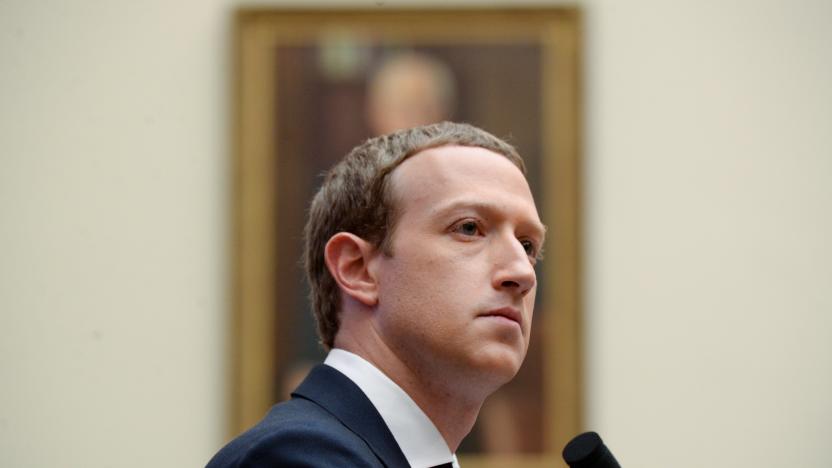
Shareholders claim Facebook overpaid an FTC settlement to protect Zuckerberg
Facebook shareholders have filed a lawsuit alleging that board members overpaid a $5 billion FTC fine to protect Mark Zuckerberg from an individual lawsuit.

CBS and Viacom agree to sign $30 billion merger deal
CBS and Viacom have reached a long-rumored merger agreement. The two companies announced today that they will reunite as ViacomCBS. According to The Wall Street Journal, CBS and Viacom hope that, together, they'll be better positioned to fight against cable TV competition and streaming services.
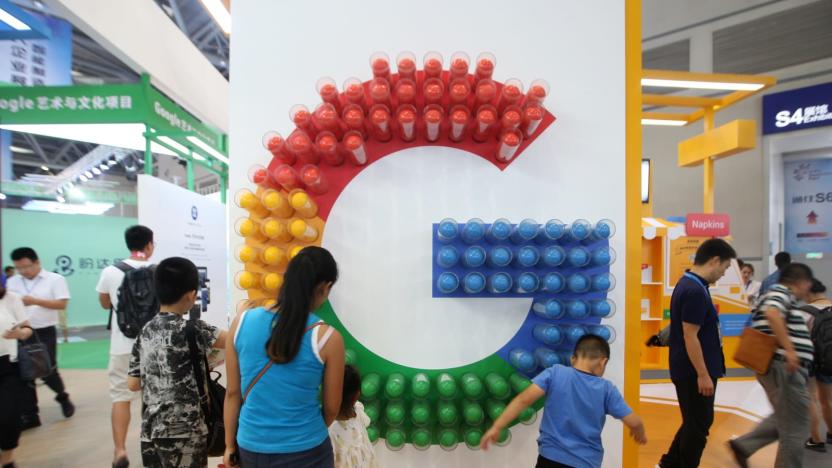
Google thwarts shareholder challenge to its China search plans
If investors and employees were hoping to prompt cultural change at Alphabet during the company's shareholder meeting, they were likely disappointed. Voters at the meeting rejected all shareholder proposals, including a resolution that would have required a human rights impact assessment before Google went forward with a censored Chinese search engine. Backers like Azzad Asset Management were concerned China could "weaponize" search data to expand mass surveillance and other human rights abuses.

Judge demands Facebook hand over data privacy records
Facebook will have to hand over emails and records related to how it handled the Cambridge Analytica scandal. In September, shareholders sued the company in order to obtain information pertaining to the leak. Today, a US judge sided with shareholders, ordering Facebook to release the documents.
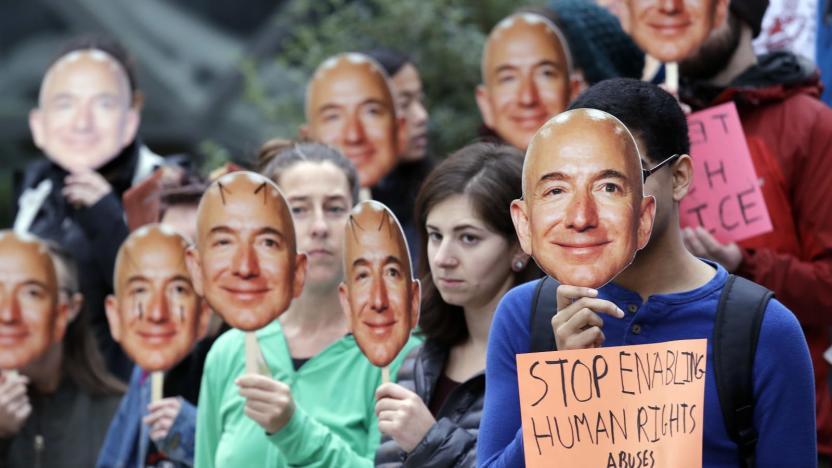
Amazon shareholders will vote to ban facial recognition tech
Amazon shareholders will vote to ban the company's controversial facial recognition technology next week in a key symbolic process. Amazon set the vote date, May 22nd, after the US Securities and Exchange Commission (SEC) rejected the company's request to have the motion squashed. A group of shareholders, led by nonprofit Open MIC, asked Amazon's board to stop selling the deep learning tools until a third party can confirm "it does not cause or contribute to actual or potential violations of human rights."
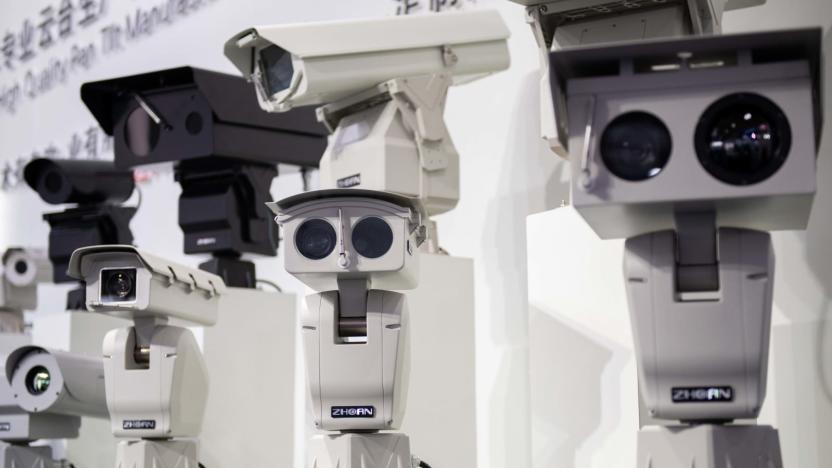
Shareholders ask Amazon to halt sales of facial recognition tech
A group of Amazon shareholders has filed a resolution requesting the company stop selling its facial recognition technology to government agencies until a review can determine whether it has the potential to violate civil rights. Organized by the non-profit Open MIC and filed by the Sisters of St. Joseph of Brentwood, the resolution is supported by a total of five shareholder groups that hold $1.32 billion of Amazon shares.

Elon Musk is seriously considering taking Tesla private
Earlier today, Elon Musk tweeted that he's considering taking Tesla private, and buying shareholders out at an above-price rate of $420 if they didn't want to stay invested. Considering the company CEO's, ahem, freewheeling speech on Twitter, it wasn't immediately clear if he was serious. But Musk published an internal email he sent this morning clarifying that while a final decision hasn't been made, he's got plenty of reasons for thinking a private Tesla operates better than a public one, at least right now.
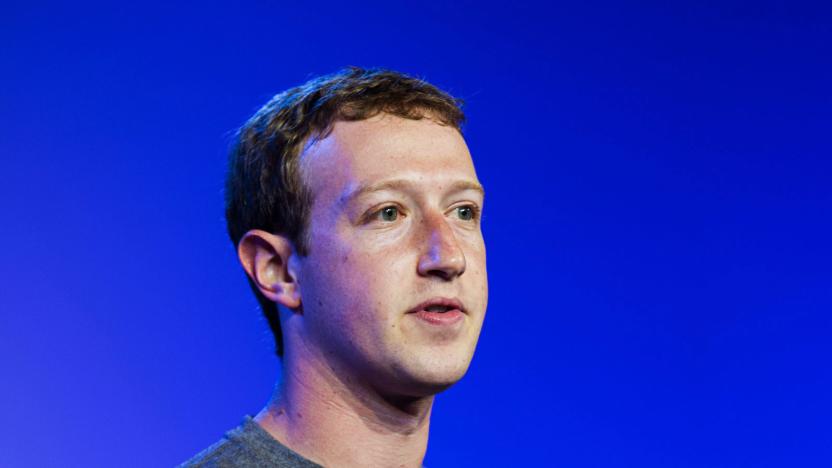
Facebook already hit with four lawsuits over Cambridge Analytica (updated)
It has been a week since the bombshell reports on Cambridge Analytica's use of Facebook user data dropped and already the social media giant is facing at least four lawsuits. Along with a class action suit filed earlier this week on behalf of Facebook users whose data was obtained by Cambridge Analytica, three shareholders have also filed their own complaints.

Activision, Vivendi lawsuit settlement amounts to $275 million
Activision Blizzard reached a settlement this week over a shareholder's lawsuit in regards to the Call of Duty publisher's October 2013 buyout. As a result, Vivendi and others will pay $275 million to Activision to settle the litigation, which began in August 2013 before Activision's $8.2 billion purchase of itself from Vivendi was completed. Under the settlement terms, Activision will also add two directors to its board and must change the terms of its voting rights. According to the lawsuit, Activision CEO Bobby Kotick and Co-Chairman Brian Kelly seemingly benefited from insider knowledge of the company's purchase, obtaining a 10 percent discount when Kotick's investment firm purchased 172 million shares of Activision for $2.34 billion. The lawsuit alleged a "breach of fiduciary duties, waste of corporate assets and unjust enrichment." Emails from the suit presented in July revealed that Vivendi wanted to fire Kotick in 2013 during the purchasing negotiations. [Image: Activision]

Tim Cook tells shareholders: Apple will not put pure profit over sustainability efforts
During Apple's annual shareholder meeting yesterday, a representative from The National Center for Public Policy Research -- a conservative think tank -- got up and sought an assurance from Tim Cook that Apple's sustainability efforts would only be pursued if deemed to be profitable. Bryan Chaffin of The Mac Observer was in attendance and described Cook's response as follows: What ensued was the only time I can recall seeing Tim Cook angry, and he categorically rejected the worldview behind the NCPPR's advocacy. He said that there are many things Apple does because they are right and just, and that a return on investment (ROI) was not the primary consideration on such issues. "When we work on making our devices accessible by the blind," he said, "I don't consider the bloody ROI." He said that the same thing about environmental issues, worker safety, and other areas where Apple is a leader. But Cook wasn't yet finished. He reportedly looked the NCPPR representative dead in the eyes and said, "If you want me to do things only for ROI reasons, you should get out of this stock." Almost comically, the NCPPR later put out a press release with the bombastic headline, "Tim Cook to Apple investors: Drop Dead." Political leanings aside, it's somewhat absurd for anyone to think that Apple's profitability is the least bit threatened by efforts to be more environmentally and socially conscious. The only companies on the planet generating as much money as Apple are oil and gas companies. What's more, Apple is the only company in the last five years -- with the exception of Gazprom in 2011 -- to post a quarterly profit over $12 billion. In the last two years alone, Apple has had four such quarters. Of all the things people like to rag on Apple for, you would think that Apple's unparalleled ability to generate more cash than it knows what do with would be the one issue people could agree on. On a final and completely unrelated note, Cook said during the shareholders meeting that Apple has acquired 23 companies in the last 16 months alone.

Zynga IPO fraud lawsuit dismissed, plaintiffs plan to amend complaint
A US judge dismissed a lawsuit filed by shareholders against Zynga today. The lawsuit alleged that Zynga purposely misled shareholders about the financial state of the company, its active user count and potential business prospects in the run-up to, and after, Zynga's initial stock offering in late 2011. US District Judge Jeffrey White said the 110-page complaint failed to offer "relevant, basic factual details" worthy of the indictment against Zynga, Reuters reports. White also threw out a complaint filed against Zynga's secondary stock offering in April 2012, citing the plaintiffs in the case had no standing due to the fact none of them had purchased any of that stock. White has given the plaintiffs an opportunity to amend their complaint and re-file. Months after Zynga's initial public offering, the company was hit with an insider trading lawsuit. While all Zynga stock holders were "locked up" and prevented from selling their stock until May 28, 2012 – months after Zynga's IPO in December, 2011 – executives within Zynga's ranks used underwriters to sell their stock at $12 a share. This loophole allowed executives to profit from the stock, which made its debut at $10 a share but quickly fell. Currently, Zynga stock prices hover at $5.29 a share on the NASDAQ. [Image: Zynga]

Apple files Preliminary Proxy Statement with SEC, urges shareholders to oppose Carl Icahn's share buyback proposal
Apple on Friday posted its Preliminary Proxy Statement with the SEC. The statement provides notice that Apple's annual shareholders meeting is scheduled to take place in 2014 on Friday, February 28. The meeting will see shareholders consider five proposals, one of which is activist investor Carl Icahn's proposal that Apple increase its stock buyback program by a minimum of US$50 billion. Apple, though, is of the position that shareholders should vote against Ichan's proposal. Apple, in its proxy statement, makes a point of noting that, while it opposes this specific proposal, it remains intent on returning profits to shareholders and is open to shareholder input in this regard. But rather than jumping on board with Icahn's proposal, Apple writes that it prefers to take a more measured approach that sees cash returned to shareholders "on an efficient and sustained basis." That said, Apple notes that it will continue to evaluate the state of its capital return program and will adjust it as need be in order to maximize the long-term interests of its shareholders. Apple further adds that because it operates in an extremely competitive and fast-moving industry, it's imperative that it maintains enough cash on hand to be able to take advantage of opportunities as they arise. The proxy statement reads in part: With breakthrough products and services such as the Mac, iPod, iPhone, iPad and App Store, the Company has created huge market opportunities, and the Board and management team believe the opportunities that lie ahead are just as exciting. Given such large and global markets, the Company competes with large companies around the world, many with their own significant technical capabilities and significant capital. This dynamic competitive landscape and the Company's rapid pace of innovation require unprecedented investment, flexibility and access to resources. Successfully innovating and executing against these large opportunities also requires careful stewardship by the Board and management team, and the Company's evaluation of capital return is conducted in the context of supporting the Company's continued business success and desire to deliver attractive returns to long-term shareholders If history is any indication, investors should be confident that Apple won't be shy about increasing its capital return program. If you recall, Apple first announced a quarterly dividend and share repurchase program of $45 billion in March of 2012 and subsequently more than doubled the program to $100 billion just one year later. That said, the proxy statement indicates that any changes to the program will be announced by March or April of 2014. As a point of interest, Apple notes that it has, to date, spent $23 billion on share buybacks and $43 billion in quarterly dividend payouts. Another shareholder proposal on the docket is whether or not Apple should create a new committee to keep tabs on human rights issues in Apple's supply chain. On this topic, Apple also urges shareholders to vote no. Apple relays that it's already doing a whole lot in this regard and that creating a new committee would be duplicative. Specifically, Apple emphasizes that it is "committed to the highest standards of social responsibility and human rights wherever we do business." The proxy statement reads in part: In addition to monitoring and driving improvements for workers in the supply chain, the Company places strong emphasis on education and worker empowerment initiatives. The Company has established a training program for new employees at the Company's suppliers to inform them of their individual rights, local laws and the Company's Supplier Code of Conduct. Millions of workers have participated in this training program. The Company also partners with educational institutions to offer free college-level courses to workers who make the Company's products. Hundreds of thousands of workers have attended these classes since 2008, and many have gone on to earn associate's degrees. The Company recently expanded this educational program to offer more opportunities for participants to work toward a bachelor's degree. ... In December 2013 the Company was awarded its 12th consecutive perfect rating from the Human Rights Campaign's annual Corporate Equality Index, which scores businesses based on lesbian, gay, bisexual and transgender workplace policies, and won the title of "Best Places to Work for LGBT Equality." The Board does not believe that establishing a committee is an effective way for the Company's practices and goals to continually evolve and improve in response to changing conditions. Instead, such an additional and redundant committee would distract the Board from its other responsibilities to the Company and its shareholders, while adding little value to the Company's existing commitment to human rights and social responsibility. The Company's existing governance framework has produced a strong commitment to human rights and progress that is evident in the Company's practices and policies.

Activision completes purchase of itself from Vivendi
Activision's buyback of $8.2 billion of its own shares from Vivendi has been completed, the publisher announced today. It was just yesterday that the Delaware Supreme Court overturned a September ruling that halted the purchase, which followed a lawsuit by an Activision Blizzard shareholder in August. The shareholder alleged a "breach of fiduciary duties, waste of corporate assets and unjust enrichment" on Activision's behalf. The publisher's purchase from Vivendi amounts to 429 million of its own shares for $5.83 billion. Additionally, Activision CEO Bobby Kotick and Co-Chairman Brian Kelly purchased 172 million shares for $2.34 billion in a separate transaction. Activision is now officially an independent company, majority owned by its shareholders. "The shares Activision Blizzard purchased in the transaction will no longer be treated as outstanding, leaving the majority of the remaining 690 million shares in the hands of public shareholders," Activision noted in today's announcement. Activision said yesterday that it expected the purchase to be completed on October 15. The transaction came about four days ahead of schedule, as someone must have sprinted to the bank this morning.

Ballmer's last shareholder letter lays out Microsoft's devices and services future
Sure, Steve Ballmer still has a few months left as Microsoft's CEO, but the last shareholder letter he'll pen while holding that title has just been posted online. The missive catches Redmond's head honcho in a reflective, yet forward-looking mood, highlighting the firm's future in devices and services, and what's been done to put it on that trajectory. Naturally, he calls out the outfit's restructuring, Windows 8, consistent UX across gadgets and its purchase of Nokia's own hardware and services division. Ballmer also reiterated that Microsoft will concentrate on building a "family of devices and services for individuals and businesses" that lean on "high-value activities," such as gaming and communicating with customers, family and friends. When it comes to turning a buck, the technology giant will lead the charge with hardware and enterprise services, using its consumer experiences such as Skype as an "on-ramp" to their business-grade products. Ballmer is set to give up his post within a year, but he thinks the future is bright for the company he'll leave behind, saying, "I'm optimistic not only as the CEO but as an investor who treasures his Microsoft stock."

T-Mobile improves its bid for MetroPCS, prompts MetroPCS to delay its vote
While executives at T-Mobile and MetroPCS may be ready to close their merger, some shareholders aren't -- major advisory firm Institutional Shareholder Services has been recommending that MetroPCS investors vote against the deal unless T-Mobile can sweeten the pot. Consider it sweetened. T-Mobile's parent Deutsche Telekom has made a "final offer" that would slash the debt owed by the post-merger company by $3.8 billion (to $11.2 billion), reduce the interest rate on that debt by half a point and prevent Deutsche Telekom from selling its shares in the merged firm for 18 months, rather than the original six. The reshuffled finances may not sound very exciting on the surface, but they're enough to put MetroPCS in a tizzy: the carrier is delaying a shareholder vote on the deal from April 12th to the 24th to allow for some reevaluations. There's no guarantees that the new offer is enough to please the naysayers. Still, we'd venture that T-Mobile will get a warmer reaction than the last time it tried a corporate alliance.

David Einhorn drops his lawsuit against Apple
Greenlight Capital hedge fund manager David Einhorn has decided to end what Apple CEO Tim Cook has referred to as a "silly sideshow" by dropping the lawsuit he'd brought against 1 Infinite Loop in early February. Filed in conjunction with other Apple shareholders, the lawsuit sought to force Apple to share more of its cash with investors and kill a vote by shareholders involving preferred shares. Einhorn and company had been awarded a victory by a federal judge last week who intervened and forced Apple to postpone the vote in question. Seemingly content with the fact that the vote had been blocked by the court, Einhorn and Greenlight have dropped the suit entirely, telling AllThingsD, "Apple removed the bundled proposal from the shareholder meeting, therefore resolving the issue." One legal matter for Apple down, countless others to go.

From the Apple shareholders' meeting: Approvals, 'new categories' and another campus delay
The Apple shareholders' meeting was held in Cupertino earlier today, and CNBC has a full liveblog of all of the proceedings. There wasn't a lot of hard news out of the meeting, as most of it was taken up with bureaucratic goings-on, including the approval of a certain accounting firm, a few votes on executive payments and the defeat of a proposal to create a Human Rights board committee at the company. All of Apple's directors were re-elected, and Tim Cook got a 99.1 percent approval rating from investors there. After the meeting, Cook took some questions from shareholders and answered them. He agreed that Apple is just as disappointed as investors in "where the stock trades now versus a few months ago -- but we're focused on the long term." Cook crowed about Apple's huge growth so far, and promised that "obviously we're looking at new categories -- we don't talk about them, but we're looking at them." Finally, Cook gave an update on Apple's new campus, saying that the work is ongoing, but it's proving to be a much bigger project than expected. Last we heard, the project was set to be all done in 2015, but Cook now says that, "I project that we will move in, in 2016." You can read through all of the notes of the meeting on CNBC's site. [via MacRumors]

Olympus confirms that Sony is now its largest shareholder
Sony got a stake in Olympus' future when it made a $645 million investment into the troubled camera firm last September, getting a board representative and a controlling share of a medical imaging project. As of this weekend, however, the foot is that much further in the door: it's now Olympus' largest shareholder. A share transfer promised alongside the investment, and officially completed on the 22nd, has boosted Sony's stake from 4.7 percent to just under 11.5 percent. The share switch doesn't give Sony enough influence to dictate Olympus' day-to-day affairs, but Sony won't have to do as much to rally support if it wants action. Olympus isn't in the best position to kick such a large investor to the curb, either. We'd expect the company to at least listen more closely to what its major funding source has to say.

Apple cancels shareholder vote after judge sides with Greenlight's Einhorn
Greenlight Capital hedge fund manager David Einhorn has scored a legal victory against Apple in the lawsuit he and shareholders filed against 1 Infinite Loop earlier this month. Reuters is reporting that US District Judge Richard Sullivan has sided with Einhorn and ordered Apple to postpone voting on a contested measure during a shareholder meeting scheduled for February 27. In a statement, Greenlight called the ruling "a significant win for all Apple shareholders and for good corporate governance." Called Proposal 2, the measure would, if approved, require a shareholder vote before the Cupertino company could issue preferred stocks. Einhorn is opposed to the measure and has instead proposed "iPrefs," a form of preferred stock and perpetual divided. In the wake of the decision, Apple has formally removed a vote on Proposal 2 from next week's meeting agenda. The measure had been paired with two other unrelated proposals -- both of which Einhorn agrees with -- in a proxy vote. Einhorn contends that combining the items amounts to "bundling," a practice which violates Securities and Exchange Commission rules. While Einhorn and company are obviously pleased with the court's decision, Reuters reports that other Apple shareholders, including pension fund CalPers, are not so happy. Einhorn's end goal is to see the matter of preferred stock issuance unbundled from Proposal 2, but Apple has so far given no indication that it intends to willingly cave to these demands. [Via AppleInsider]









